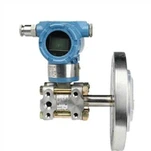Application of Torque Sensors in Power Tools and Mechanical Equipment
Torque sensors are critical components in power tools and mechanical equipment, offering precise measurement and monitoring of torque output. Their applications span a wide range of industries, ensuring optimal performance, quality control, and reliability. Below is a detailed exploration of their applications, supported by practical examples.

---
1. Power Tools
Torque sensors are integral to various power tools, such as electric screwdrivers, torque wrenches, and electric drills. They measure and monitor torque output to ensure precise torque application during assembly processes.
- Example: In automotive assembly lines, electric screwdrivers equipped with torque sensors ensure that bolts are tightened to the exact specifications required by the manufacturer. This prevents issues such as over-tightening, which can damage components, or under-tightening, which may lead to mechanical failures.
- Benefits: By providing real-time torque feedback, these sensors enhance assembly quality, reduce rework, and improve product reliability.
---
2. Mechanical Equipment and Industrial Machinery
Torque sensors are widely used in mechanical equipment and industrial machinery, including machine tools, conveyor systems, and hydraulic presses. They monitor torque output to ensure equipment operates within optimal parameters.
- Example: In CNC machining centers, torque sensors are used to monitor the cutting forces applied by spindle motors. This data helps optimize machining parameters, prevent tool wear, and maintain dimensional accuracy of machined parts.
- Benefits: Torque sensors enable predictive maintenance by detecting abnormal torque patterns, reducing downtime, and improving production efficiency.
---
3. Automotive Repair and Maintenance
In automotive repair and maintenance, torque sensors are essential for ensuring the correct application of torque on critical components such as bolts, nuts, and brake systems.
- Example: During brake system maintenance, torque sensors are used to tighten brake caliper bolts to the manufacturer's specified torque values. This ensures proper brake function and prevents safety hazards caused by improper torque application.
- Benefits: Torque sensors enhance repair accuracy, reduce the risk of component failure, and improve vehicle safety.
---
4. Mechanical Assembly and Quality Control
Torque sensors play a vital role in mechanical assembly processes, ensuring consistent torque application and adherence to quality standards.
- Example: In the assembly of aerospace components, torque sensors are used to tighten fasteners on aircraft engines. This ensures that each fastener meets stringent torque requirements, critical for the safety and performance of the engine.
- Benefits: By providing real-time torque data, these sensors enable quality assurance, reduce variability in assembly processes, and enhance product reliability.
---
5. Power Transmission Systems
Torque sensors are employed in power transmission systems to measure and monitor torque distribution, efficiency, and load conditions. Applications include drive shafts, clutches, and transmissions.
- Example: In wind turbines, torque sensors are used to monitor the torque transmitted through the gearbox. This data helps optimize power generation efficiency and detect potential mechanical issues before they lead to costly failures.
- Benefits: Torque sensors improve energy efficiency, enable performance optimization, and support predictive maintenance strategies.
--
Key Advantages of Torque Sensors in Industrial Applications
1. Precision and Accuracy: Torque sensors provide highly accurate measurements, ensuring consistent performance and quality.
2. Process Optimization: Real-time torque data enables the fine-tuning of operational parameters, enhancing efficiency and productivity.
3. Fault Diagnosis and Predictive Maintenance: Abnormal torque patterns can be detected early, reducing downtime and maintenance costs.
4. Quality Assurance: Torque sensors ensure compliance with industry standards, improving product reliability and safety.
---
Conclusion
Torque sensors are indispensable in modern power tools and mechanical equipment, offering critical insights into torque application and system performance. From automotive assembly to wind turbine monitoring, their applications are diverse and impactful. By integrating torque sensors into industrial processes, manufacturers can achieve higher precision, efficiency, and reliability, ultimately driving innovation and competitiveness in their respective fields.
This professional and structured overview highlights the importance of torque sensors in various industries, supported by practical examples to illustrate their real-world applications.










